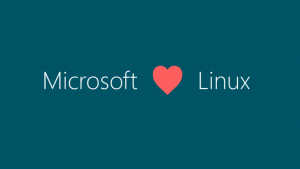SQL Server on Linux Journey – Part 1: First date
The relationship between SUSE and Microsoft is not so new. It is exciting to think that back in 2006 (almost 15 years ago!), both companies entered into a partner agreement to collaborate on interoperability, providing greater choice to customers in developing comprehensive environments. And today, it is amazing to see that SQL Server on Linux is only one of the many areas where we collaborate.
The 2006 agreement was unique among Linux distributors at the time and, ever since, we maintain a great relationship with Microsoft.
Microsoft SQL Server Success
SQL Server is the most deployed database in the world even after 30 years from its launch. And it was rated the least vulnerable database platform for the last nine years in a row by the National Institute of Standards and Technology.
One of the reasons for SQL Server`s continued success, according to Asad Khan, is not only having the best relational engine but also focusing on the primary goal of enabling companies to successfully harness the power of data.
For that, Microsoft is innovating inside and outside of the relational engine and we’ll talk more about that “outside” portion when we get to the topic of Big Data Clusters within this series.
Bringing that success to Linux

As you may remember, Microsoft has been supporting Linux for SQL Server since September 2017 in the spirit of giving customers more choices of platform and we were quick to jump on the “Microsoft LOVES Linux” wagon.
Since then, Microsoft has been dedicating a lot of engineering effort to make sure we have feature parity between Windows and Linux, and this is 99% true for SQL Server 2019, generally available since November 4, 2019.
Tejas Shah, Principal Program Manager at Microsoft, described a few steps needed to bring SQL to Linux while presenting his SUSECON Digital session. He said that the SQL Server product group worked with the Microsoft research team to create a component called SQL PAL (Platform Abstraction Layer) which allows us to run the same SQL Server binary on Windows and Linux platforms. So, when you run a query against SQL Server on Windows or Linux it will compile, optimize and execute the exact same data.
Also, SUSE Linux Enterprise Server clients have access to all the same enterprise-grade security features found in SQL Server on Windows with no compromises, including Transparent Data Encryption, Backup Encryption, Always Encrypted, and Cell-Level Encryption.
Next Stop… Part 2
On Part 2 of this series we talk about SQL Server on-premises success with hardware partners such as Hewlett-Packard Enterprise and Lenovo. And later we’ll talk about Azure Virtual machines, high availability, containers and Big Data Clusters. Stay tuned!
Click to learn more
Related Articles
Nov 05th, 2023
New SAP Solutions on Azure by SLES for SAP Applications
Oct 05th, 2022
No comments yet